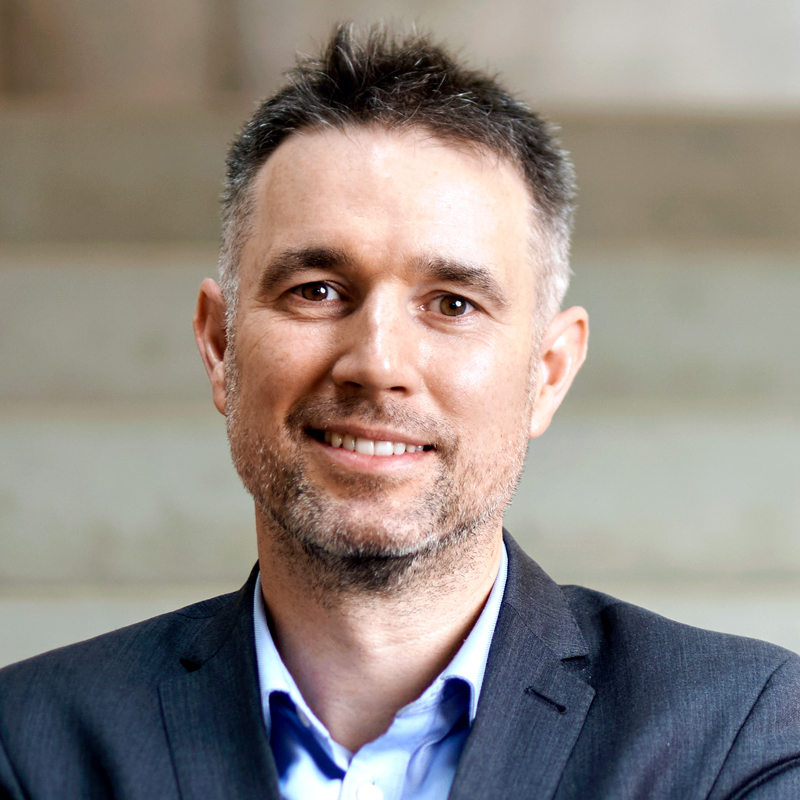Lessons from consumer culture theory
Aron Darmody (Associate Professor, Marketing) studies the ways marketing strategies influence consumer behaviour.

Family members often gravitate toward similar professions. Growing up in Ireland, Aron Darmody was surrounded by educators in his family, which instilled in him a deep appreciation for education and an awareness of issues related to pedagogy and educational administration.
After secondary school, however, Aron was drawn to the business world. He completed his Bachelor of Commerce, specializing in Marketing; then, after a couple of years in the workforce, he pursued a Master’s degree. He next landed a marketing job at a marketing communications agency that opened the door to a variety of career paths, but couldn’t shake the nagging sense that he wanted to do something different: academic research. Returning to school to pursue doctoral studies, he embarked on a program of research to study how value is created at the intersection of marketing strategy and consumer behaviour. After that, he launched his own career in education as a university professor.
Aron has made a range of contributions in the field of consumer culture theory, where consumers and marketing are studied from a sociocultural perspective. Aron’s critical analysis of value co-creation, which has been cited more than 1,200 times, has been influential in changing how many understand and talk about this phenomenon.
Co-creation occurs when consumers and companies collaborate in the creation of products and services.
Taking a contrarian but balanced approach, Aron and his co-authors argued that co-creation involves “the exploitation of consumers even if co-productive activities are engaged in voluntarily and, at times, with a significant degree of enjoyment” (Putting consumers to work, 80). That’s not to say that co-creation is bad or totally skewed toward corporate gain; after all, it gives consumers access to unique and individualized products and services. But the flip side of co-creation is that consumers who do more and engage more, create massive opportunities for companies and ultimately pay more.
In a different context, Aron’s interest in productive consumer spaces has led him to explore psychological ownership within crowdfunding initiatives. Defined in “Psychological ownership and disownership in reward-based crowdfunding” as “feelings of ownership towards the projects that they back, despite the absence of any legal or financial entitlement,” psychological ownership can inspire backers to supplement their financial contribution with additional long-term, intangible support and to foster a sense of community with the creator and fellow backers.
Aron and his collaborators were most interested in what happens when these feelings of ownership sour. They investigated the Oculus Kickstarter campaign, a massively successful fundraising initiative for an upstart indie company that energized and mobilized a diverse range of backers, many of whom they interviewed in their research. When founder Palmer Luckey sold Oculus to Facebook less than two years after the end of the campaign, backers who had supported Oculus as a small, independent alternative to the tech giants felt that he had sold them out, too.
By analyzing backers’ strong negative responses to the sale (e.g., feelings of betrayal and powerlessness, distrust of the crowdfunding system, and dissociation from the virtual reality headset and their prior support of it) Aron and his co-authors could observe and theorize a new construct: psychological disownership. Different from a lack or loss of ownership, disownership manifests as backers’ active and self-conscious efforts to distance themselves from their previous object of ownership. With Oculus, one backer went so far as to express his intention to “burn my Oculus shirt.”
Crowdsourcing is another form of consumer work that Aron has investigated. Framing crowdsourcing as a form of “prosumption” or productive consumption, Aron conducted an empirical investigation of crowdsourced digital nautical maps, which give fishers information about water depths, lakebed contours, fish types and locations, and navigable passages, among other things. While some fishers happily work to improve the quality of the maps by posting comments on map overlays and publicly sharing sonar scans, Aron shows how others engage in various “knowledge hiding” strategies, deliberately keeping their contributions private for a range of practical and moral reasons.
Aron’s latest project continues to explore the consumer-marketer nexus, but more from the marketing side of the dynamic. Supported by a recently-awarded Insight Grant from the Social Sciences and Humanities Research Council (SSHRC), Aron is looking at how marketers do the work of marketing:
“Marketing research tends to focus on the effects that marketers have, but I want to look at the effecting that they do in their job functions. What do these people do on a day-to-day basis? How do they make their decisions? How do they interact with each other and with technology?”
These are big questions, but we can be confident that Aron’s answers will provide sophisticated insights into marketing and consumer culture that will benefit both marketers and consumers alike.
